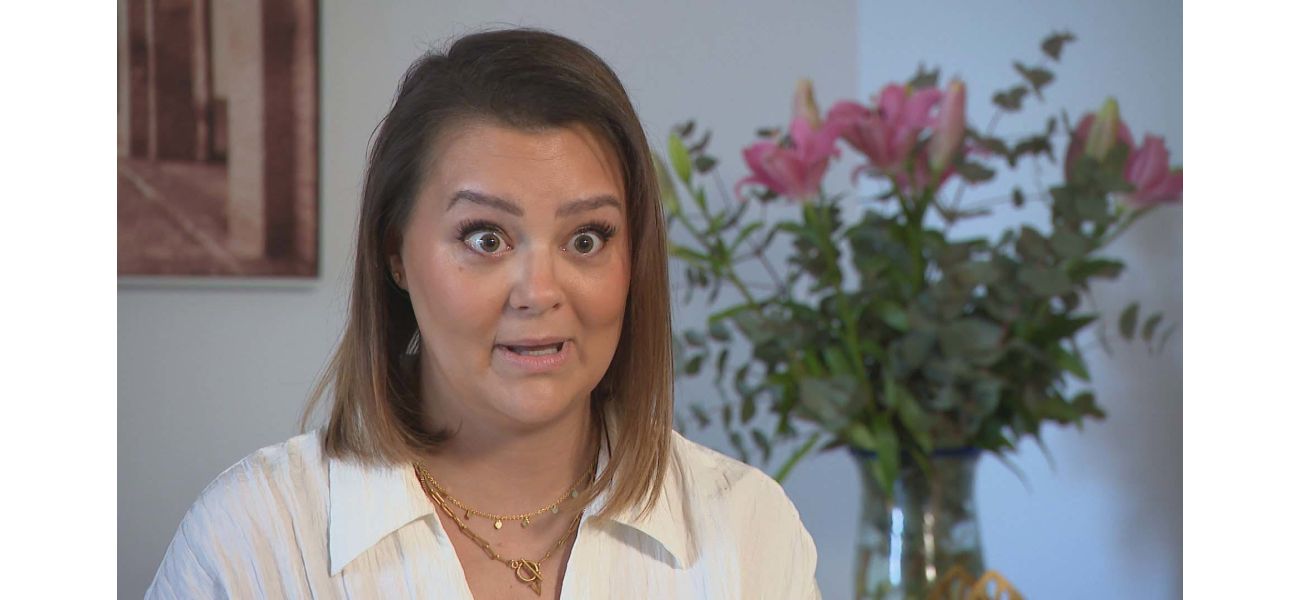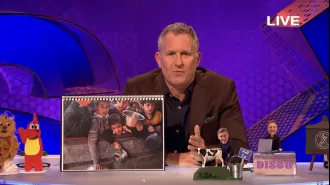Vanja was misdiagnosed with a muscle tear, when in reality she had a fatal cancer.
She must use her powers to cover drug expenses.
November 18th 2024.

A mother from Sydney, Vanja Wilson, is facing a difficult battle with ovarian cancer. She has been forced to use her superannuation to fund a drug that could potentially save her life. However, she believes that not enough is being done to improve survival rates for women facing this disease in Australia. Wilson feels a strong sense of responsibility to raise awareness and advocate for better treatment options, stating, "I feel like I have a responsibility to scream and shout loudly about it and say 'hey, this is killing women in Australia'."
Wilson's journey began in May when she was diagnosed with advanced ovarian cancer. Her initial symptom, a golf ball-sized lump on her abdomen, was dismissed by her GP as scar tissue from previous caesareans. Despite this, her GP sent her for an ultrasound which came back with a false diagnosis of a muscle tear. Six months later, after discovering blood in her stool, Wilson underwent a colonoscopy which confirmed that she had cancer. She recalls, "We knew from the biopsy that it was ovarian cancer but we didn't know how much it had spread."
Unfortunately, Wilson's cancer had reached stage 4, meaning it had spread to other parts of her body. She underwent six hours of surgery to remove the cancer and has recently completed 16 weeks of chemotherapy. Wilson expresses her frustration with the disease, stating, "This is the problem with ovarian cancer, it's found so late. I was so full of energy and life and just would never have assumed."
The statistics for ovarian cancer are alarming. About 70 per cent of women are diagnosed with advanced ovarian cancer, and for those with stage 4, there is a 90 per cent chance the cancer will return even after aggressive treatment. Wilson is determined to fight the disease and is using her superannuation to fund a daily pill called Zejula, which has been known to delay the return of cancer. However, this will come at a significant financial cost. She explains, "At this point, I'm not talking about retirement, I'm talking about survival."
Unfortunately, the drug Zejula is only available on the Pharmaceutical Benefits Scheme for those with an inherited cancer gene, leaving many women, like Wilson, at a disadvantage due to subsidy limits. Robin Penty, CEO of the Ovarian Cancer Research Foundation, expresses her concern, stating, "I don't think it's acceptable with such few treatment options for women with ovarian cancer. It's heartbreaking. I think all women with ovarian cancer face significant financial hurdles."
Despite her own battles, Wilson has raised $25,000 for the foundation, providing seed funding for researchers such as Professor Carlos Salomon Gallo at the University of Queensland. His work on a blood test, called OCRF-7, has received a significant boost with further funding from the OCRF and the federal government. A study involving 1000 women has already shown that the test is over 90 per cent accurate in identifying stage 1 and 2 ovarian cancer, compared to the current CA-125 test which only identified cancer in 60 per cent of patients. The test identifies exosomes, or bubbles of information, released from tumor cells on the surface of the ovary and fallopian tube into the bloodstream.
Professor Salomon Gallo hopes that, with continued funding and research, the test could be available to the public in three to four years. He emphasizes the importance of early detection in improving survival rates, stating, "The majority of women who suffer from this terrible disease don't have any symptoms. In the future, we'd like to implement this test as a screening program for the Australian population."
Ovarian cancer remains a major concern in Australia, with five women being diagnosed every day. The average five-year survival rate is only 49 per cent, compared to 92 per cent for breast cancer and 74 per cent for cervical cancer. Wilson expresses her fear for the future, stating, "We have screening for bowel cancer, we have vaccines for cervical cancer, there's nothing for ovarian cancer and you know, I have two daughters. It's just scary."
In the midst of her own struggles, Wilson's friends have set up an online fundraiser to support her. Despite the challenges she faces, she remains determined to fight for better treatment options and awareness for ovarian cancer.
Wilson's journey began in May when she was diagnosed with advanced ovarian cancer. Her initial symptom, a golf ball-sized lump on her abdomen, was dismissed by her GP as scar tissue from previous caesareans. Despite this, her GP sent her for an ultrasound which came back with a false diagnosis of a muscle tear. Six months later, after discovering blood in her stool, Wilson underwent a colonoscopy which confirmed that she had cancer. She recalls, "We knew from the biopsy that it was ovarian cancer but we didn't know how much it had spread."
Unfortunately, Wilson's cancer had reached stage 4, meaning it had spread to other parts of her body. She underwent six hours of surgery to remove the cancer and has recently completed 16 weeks of chemotherapy. Wilson expresses her frustration with the disease, stating, "This is the problem with ovarian cancer, it's found so late. I was so full of energy and life and just would never have assumed."
The statistics for ovarian cancer are alarming. About 70 per cent of women are diagnosed with advanced ovarian cancer, and for those with stage 4, there is a 90 per cent chance the cancer will return even after aggressive treatment. Wilson is determined to fight the disease and is using her superannuation to fund a daily pill called Zejula, which has been known to delay the return of cancer. However, this will come at a significant financial cost. She explains, "At this point, I'm not talking about retirement, I'm talking about survival."
Unfortunately, the drug Zejula is only available on the Pharmaceutical Benefits Scheme for those with an inherited cancer gene, leaving many women, like Wilson, at a disadvantage due to subsidy limits. Robin Penty, CEO of the Ovarian Cancer Research Foundation, expresses her concern, stating, "I don't think it's acceptable with such few treatment options for women with ovarian cancer. It's heartbreaking. I think all women with ovarian cancer face significant financial hurdles."
Despite her own battles, Wilson has raised $25,000 for the foundation, providing seed funding for researchers such as Professor Carlos Salomon Gallo at the University of Queensland. His work on a blood test, called OCRF-7, has received a significant boost with further funding from the OCRF and the federal government. A study involving 1000 women has already shown that the test is over 90 per cent accurate in identifying stage 1 and 2 ovarian cancer, compared to the current CA-125 test which only identified cancer in 60 per cent of patients. The test identifies exosomes, or bubbles of information, released from tumor cells on the surface of the ovary and fallopian tube into the bloodstream.
Professor Salomon Gallo hopes that, with continued funding and research, the test could be available to the public in three to four years. He emphasizes the importance of early detection in improving survival rates, stating, "The majority of women who suffer from this terrible disease don't have any symptoms. In the future, we'd like to implement this test as a screening program for the Australian population."
Ovarian cancer remains a major concern in Australia, with five women being diagnosed every day. The average five-year survival rate is only 49 per cent, compared to 92 per cent for breast cancer and 74 per cent for cervical cancer. Wilson expresses her fear for the future, stating, "We have screening for bowel cancer, we have vaccines for cervical cancer, there's nothing for ovarian cancer and you know, I have two daughters. It's just scary."
In the midst of her own struggles, Wilson's friends have set up an online fundraiser to support her. Despite the challenges she faces, she remains determined to fight for better treatment options and awareness for ovarian cancer.
[This article has been trending online recently and has been generated with AI. Your feed is customized.]
[Generative AI is experimental.]
0
0
Submit Comment





